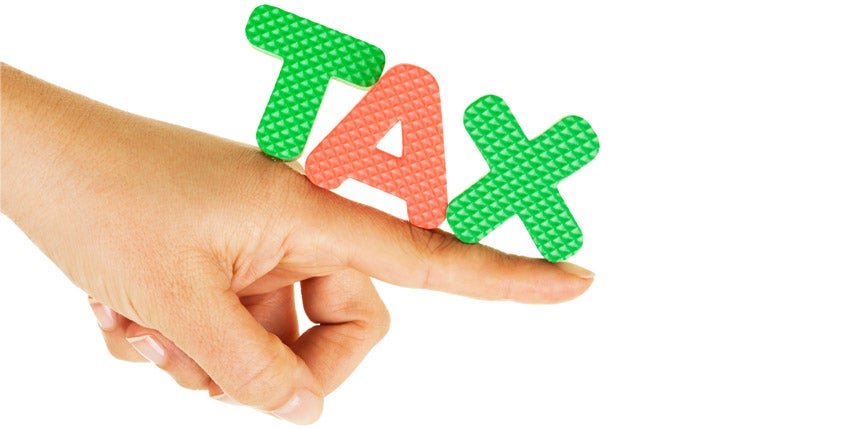What Do I Need to Know About Sales Tax?

Sales tax is a tax on retail sales transactions. Sales taxes are set up by each individual state and local jurisdiction, and can be administered in a variety of ways. Some sales taxes are on the retailer directly, while others are on the consumer, but collected by the retailer. Exemptions to the tax are also established by the individual state. As a small business owner, you’ll have to deal with the sales tax unless you’re in one of the handful of states with no sales tax (and have no additional local taxes), so knowing how it works and what it affects will help you be ready for tax season.
What Is Taxable?
Sales tax generally applies to the retail sale of tangible, personal property. What does this mean? The tax doesn’t apply to real property, land or buildings, or to the sale of services, although some states now tax services, as well. When a transaction involves a combination of taxable and non-taxable elements, it can be handled many ways. Some sales are obviously taxable property, while others are clearly non-taxable services. However, some include both, like a repair job for an automobile, which will include both parts and labor. In this example, depending on how major the labor is, the shop might choose to either charge sales tax on the entire bill, or divide the invoice into parts and labor, only charging sales tax on the parts element.
What Is Exempt?
Sales tax goes beyond the property/service distinction, though. There are many other common exemptions. Most commonly, when you purchase goods for resale, they are not taxed. So if you own a store and purchase inventory from a wholesale supplier, you won’t be charged sales tax. The tax will only be paid on the final transaction to the end-line consumer. If you manufacture something and purchase supplies that you need for the manufacturing process, again, you can claim exemption because the tax will come due at a later sale to the consumer. Sales tax is designed to apply to the point of consumption, not each stop along the way. If you are a reseller, you’ll give your vendors a copy of your Resale Certificate.
Another common exemption is for particular classes of goods, which are selected by each state individually. These are usually essential subsistence goods, such as food, medicine, and occasionally clothing.
Depending on who the consumer is or the intended use, there might be additional exemptions. Any sale to the federal government is exempt from sales tax, for example, and sales to state, city, and county governments are exempt in most states (California is a notable exception). Sales to non-profit charities, educational organizations, or religious organizations are also exempt in most states. Goods intended for agriculture, pollution control, or other public interests are exempt in some states. Look up your state’s specific code to find out which exemptions might apply to you.
Sales tax does not apply to transactions outside the state. If a business sells a product to customers in another state, and the business does not have a nexus, or physical presence, in that state, then it is not obligated to collect the tax. This commonly applies to orders over the phone, the mail, or (most often today) the Internet. Please note, though, that this does not mean these goods are completely untaxed. Instead, the customer is obligated to report the purchase to the state directly and pay the tax, now considered a “use tax.” Many individuals, though, are completely unaware of this requirement.
Registering with the State
If you are a merchant, contact the sales tax commission in your state to register your business. You’ll then be required to collect the sales tax for the state, report your sales tax returns on a monthly or quarterly basis in a financial statement, and remit the tax to the state taxing authority. You’ll need to register with each state in which you have a physical presence, or nexus. An example might be a branch operation, an employee, or sales representatives doing business in person. Any kind of physical location. Because of this requirement, a large, national company will probably be registered with each state that collects sales tax.
